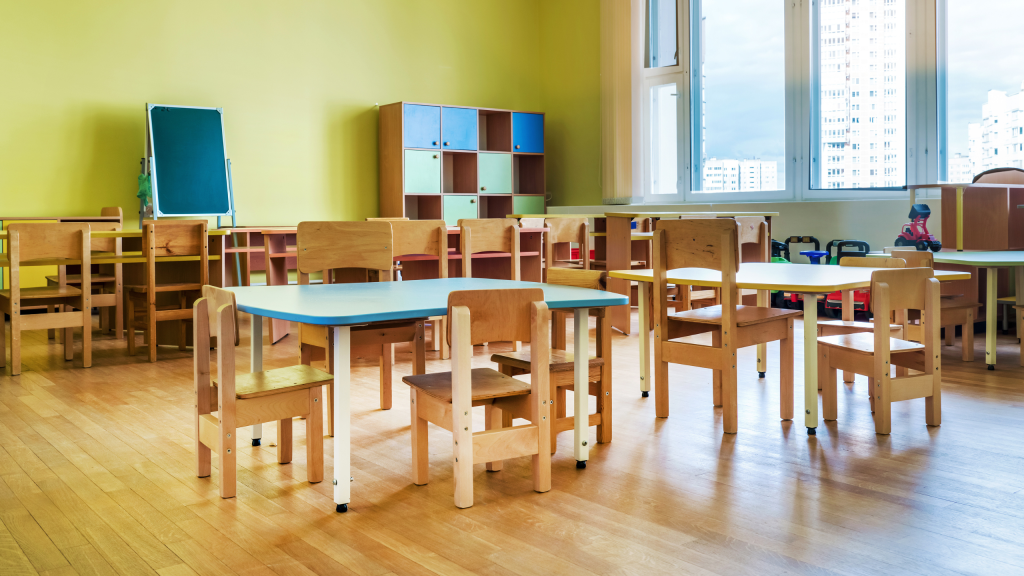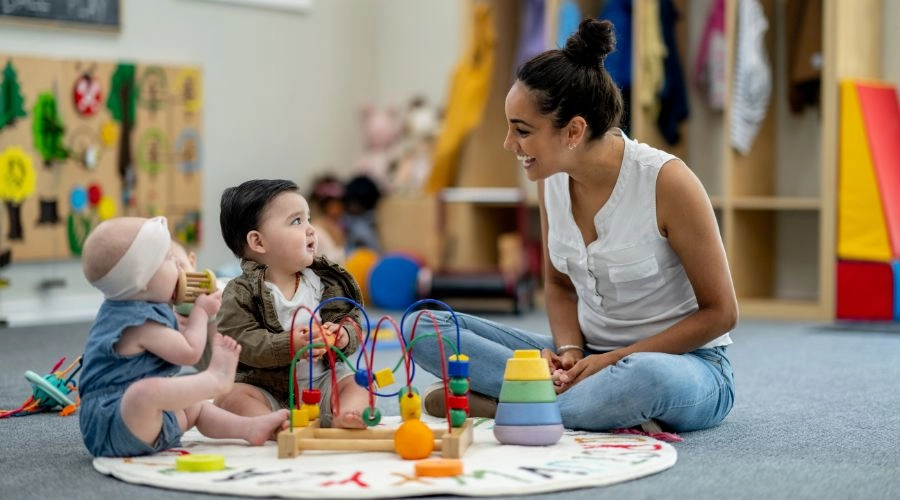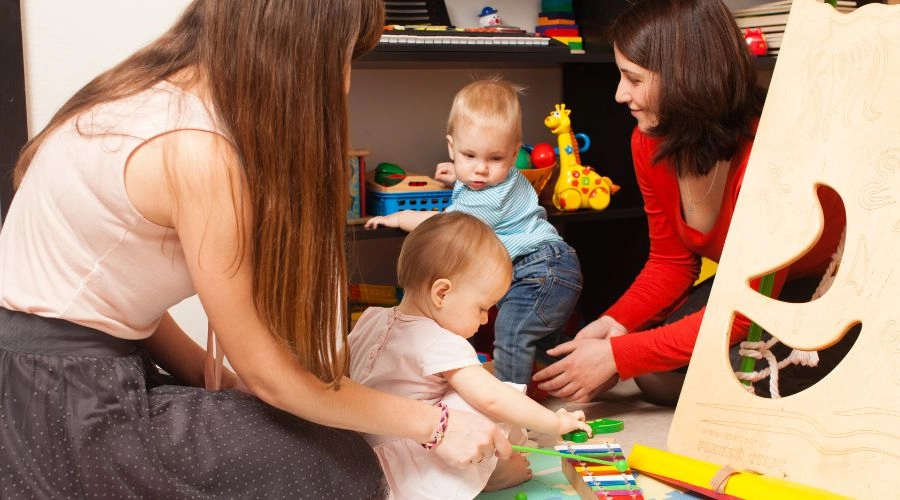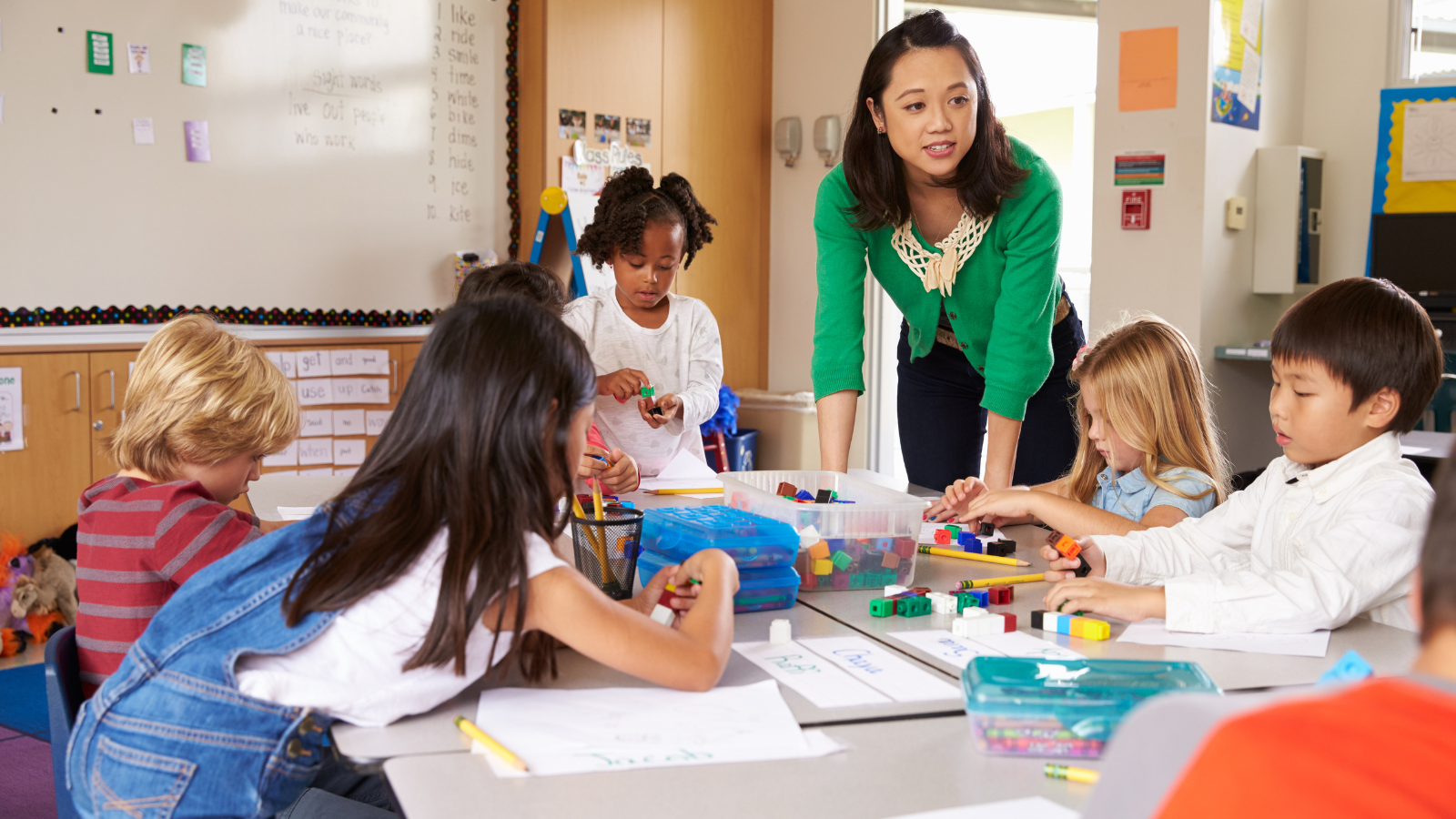In childcare centers, keeping kids safe is super important. When parents drop off their children, they trust the caregivers to look after them well. This means following strict rules to make sure everything is safe and healthy. These rules cover lots of things, like keeping things clean, checking the building regularly, and practicing what to do in emergencies. Childcare is a busy place, full of active kids, so safety rules are key to making sure everyone can have fun and learn without worries.
Experience the difference at Paramus Daycare, where we prioritize the holistic development of children through our high-quality preschool programs. Serving northern Bergen County, including Ridgewood, Oradell, Emerson, and Paramus, contact us at (201) 500-2951 to learn more about our engaging curriculum.
Understanding Safety Protocols:
Safety protocols are rules and plans to keep people safe in a place. In childcare centers, these rules protect kids, staff, and families. They involve keeping things clean to stop sickness, following strict toy and building rules, and training staff for emergencies. Safety rules also help everyone feel emotionally good, like stopping bullying and ensuring all kids feel included. By focusing on safety, childcare centers create a happy place for kids to grow and learn, giving parents peace of mind about their child’s well-being.
The Importance of Safety Policies in Childcare:
Clear safety rules are really important in childcare centers. They keep everyone safe and help parents feel confident about leaving their kids there. These rules are like a guide for caregivers and parents, telling them what to do in different situations, such as accidents or emergencies. They cover stuff like how many adults should be watching the kids, keeping things clean, handling allergies, and giving medicine when necessary. Safety rules also get updated when needed to make sure the center stays safe for everyone. Childcare centers earn families’ trust and ensure everyone feels safe and secure by being careful about safety.
Addressing Public Health Concerns:
In light of recent public health challenges like the COVID-19 pandemic, daycare centers have amplified their health and safety protocols. Rigorous measures have been implemented to protect the well-being of all stakeholders involved. These include:
1. Enhanced Cleaning Practices: Cleaning toys and surfaces a lot to stop germs from spreading is really important in childcare safety rules. Caregivers clean play areas, toys, and things people touch a lot during the day using special cleaning stuff that kills germs. Doing this helps keep kids from getting sick and shows them how important it is to stay clean.
2. Health Screenings: Checking kids and staff for signs of sickness every day is really important in childcare safety rules. Before coming inside, kids get checked for things like a fever, cough, or runny nose. Staff also keep an eye on themselves and tell someone if they feel sick. Doing this helps spot sickness early so the center can stop it from spreading and keep everyone safe and healthy.
3. Illness Prevention Policies: Having clear rules for dealing with sick kids and staff is really important in childcare places. They make sure sick people are spotted and kept away from others, and parents are told what’s going on. Staff also learn how to recognize when someone is sick and how to stop germs from spreading by washing hands and covering coughs. By following these rules, childcare centers make sure everyone stays healthy and safe.
Daycare Safety Checklist: 10 Precautions for a Secure Environment:
1. Secure Entrances: Ensure that entry points are monitored and restricted to authorized individuals only.
2. Emergency Preparedness: Have a detailed emergency plan in place for evacuations, lockdowns, and other unforeseen events.
3. Childproofing: Keep hazardous items and substances out of reach, and ensure that electrical outlets and sharp objects are properly secured.
4. Staff Training: Provide comprehensive training to staff members on safety protocols, emergency procedures, and child supervision.
5. Supervision Guidelines: Maintain appropriate staff-to-child ratios to ensure adequate supervision at all times.
6. Health and Hygiene Practices: Encourage frequent handwashing among children and staff, and promote good hygiene habits.
7. Allergen Management: Keep track of children’s allergies and dietary restrictions, and ensure that appropriate measures are taken to prevent exposure.
8. Regular Inspections: Conduct routine inspections of facilities and equipment to identify and address any safety hazards promptly.
9. Communication with Parents: Maintain open lines of communication with parents regarding safety procedures, updates, and incidents.
10. Continuous Improvement: Regularly review and update safety protocols based on feedback, incidents, and evolving best practices.
Conclusion:
In childcare centers, sticking to health and safety rules is key to keeping kids safe and happy. By being careful and watching out for anything risky, daycare centers can keep their promise to parents to look after their children well. Today, with all the changes happening, making sure kids are safe is more important than ever. So, following safety rules and being vigilant is really crucial in childcare centers.






